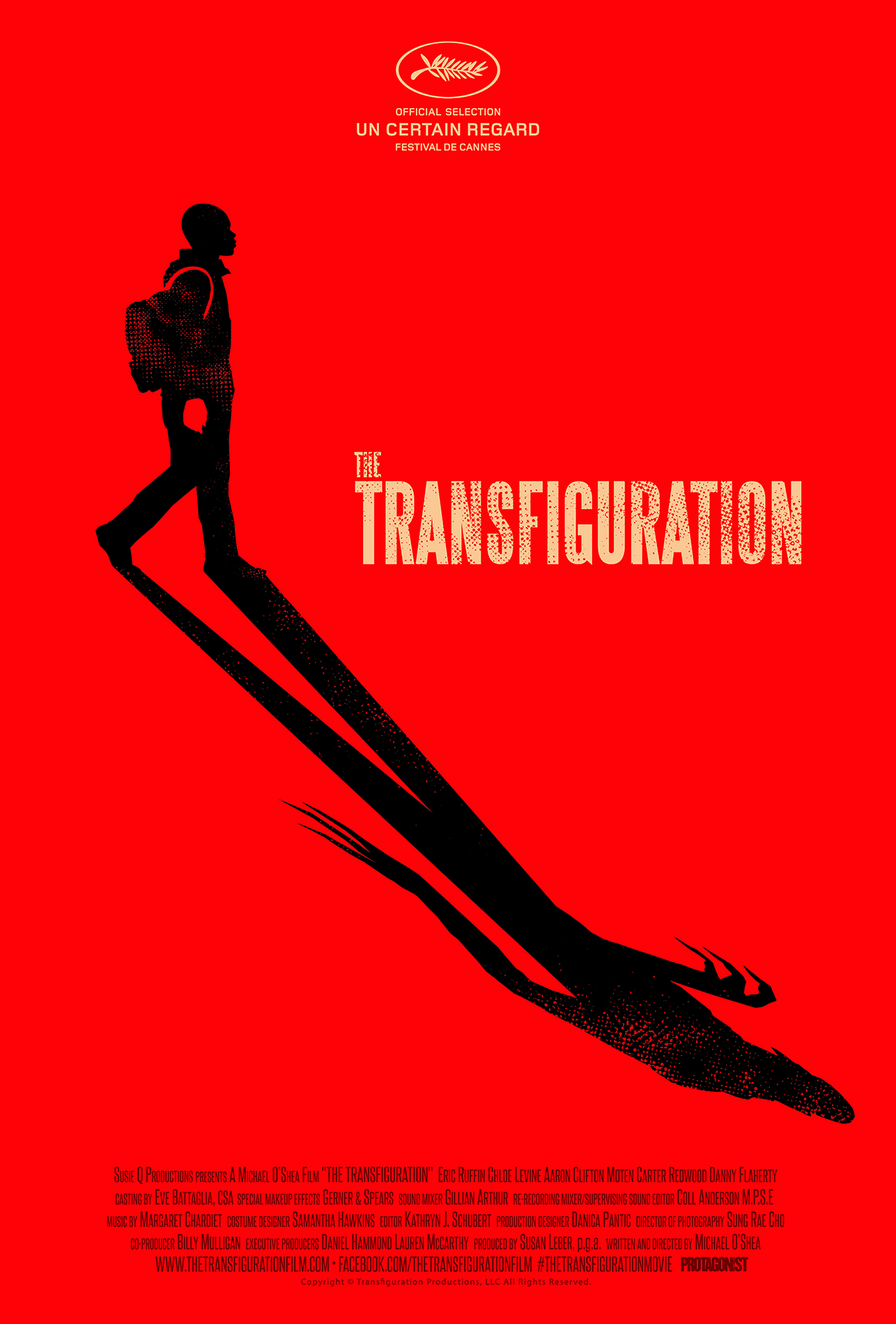Film Review: The Transfiguration (2017)


Have you ever discussed vampire movies with someone before? What do you consider to be the best, and worst, the genre has to offer? In director Michael O’Shea’s debut feature, The Transfiguration, we learn that if it’s realism you’re after, you can forget those Twilight movies. It’s best to go straight to the heavy hitters like Swedish director Tomas Alfredson’s Let the Right One In (2008) and George A. Romero’s Martin (1978). O’Shea’s film makes no effort to hide the influence these works have had on his own. He directly references them by name, in fact. But The Transfiguration is far from simply a critique of vampire films of yore, and it’s also not exactly a horror movie. It’s more akin to a character study—one of a deeply disturbed boy who uses vampire lore to explain his inclinations and to cope with the loss he’s felt.

Milo (Eric Ruffin) is a friendless teenage loner who’s bullied at school and at odds with just about everybody, except his older brother Lewis (Aaron Clifton Moten). Milo is obsessed with vampires and uses them to help explain his urges. His young mind has developed the notion that he is a vampire, and that’s why he must drink blood to survive, and in doing so, hunt and kill people. When he meets another outcast named Sophie (Chloe Levine), the two quickly develop a sort of outsider kinship. This unexpected turn in Milo’s life begins to make him question his actions, which leads him to feel more “human” than he ever has.

I was impressed with what O’Shea and his team accomplished. The strict adherence to handheld shots from cinematographer Sung Rae Cho is a bit jarring at times (I counted exactly zero static shots in the whole film), but I’ll mostly forgive it simply because when it works, it really works. It’s a movie-making trend, regardless of budget, that doesn’t seem to be going anywhere anytime soon, but I feel that it should be used a bit more sparingly. A small gripe, but one of note. Aside from this, I found the film completely captivating from start to finish.
It’s a sparse film, to say the least. Plenty happens, but it creeps up on you so expertly that by the time it all hits you, it’s over, leaving nothing but a trail of increased heart rates and goosebumps in its wake. This is helped by the score, which is kept minimal, but still particularly effective. It accompanies short and frenzied bursts of violence with shocking dark 80s synth (a very nice touch). The tension achieved is impressive, building and building until there’s nowhere to go. It lashes out at you, not exactly unexpected, but with such care and deliberation that it still manages to grab you and sink its teeth in any way (my one and only pun, I promise).

The acting is executed very well, with Ruffin and Moten leading the way. Again, it’s all very minimal, and there’s no wasted dialogue. Nearly every word spoken exists to move the plot along. Milo’s older brother, Lewis, delivers the most profound words of the film when he says, “Whatever it is you’re doing, there’s someone doing a whole lot worse.” Do these words give Milo permission to continue his dark activities, or do they mean something wholly different? It’s tough to tell, as we only catch a few scattered glimpses of Milo’s humanity throughout the film. He’s otherwise emotionless and expressionless, going through the motions of being human. Operating on instinct, perhaps.

You may be surprised to hear that, despite all the vampire references The Transfiguration is laced with, the film that kept coming to my mind was Martin Scorsese’s Taxi Driver (1976). Ruffin’s Milo could be a kindred spirit to De Niro’s Travis Bickle in more ways than one. Both are eccentric loners whose skewed views of reality drive them to action. They have seen good people wronged by bad men, and something must be done. Though the exact routes they take to achieve this may be different, the result is the same.
If it’s straight blood and guts horror you’re after, you may want to look elsewhere. But, if you enjoy a carefully paced plot with well-crafted character development—with some genuine intensity and heart-pounding tension thrown in—look no further. The Transfiguration has a way of creeping up on you.
